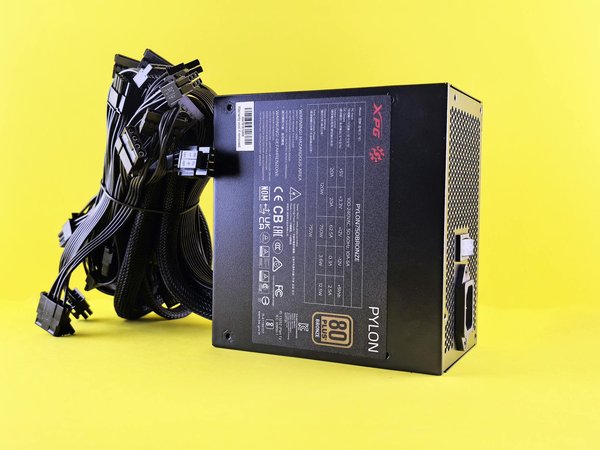Innovative UK Hardware Solutions Meeting Big Data Demands
The UK computing hardware sector is making significant strides with big data analytics advancements tailored to handle vast and complex datasets. Central to this progress are specialised processors designed for parallel computing architectures. These processors enable simultaneous data processing, dramatically reducing analysis time and supporting real-time insights.
Storage technologies have evolved to meet the demands of large-scale data influx, incorporating high-capacity, high-speed drives and innovative memory solutions. Optimised storage systems ensure data retrieval is swift and reliable, crucial for intensive analytic workloads common in big data environments.
Improvements in network infrastructure are also pivotal. The development of high-speed and scalable networks allows seamless data transfer across distributed computing systems. This ensures analytics platforms operate without bottlenecks, harnessing the full potential of hardware innovations within the UK computing hardware ecosystem.
Together, these advances reflect a comprehensive approach to overcoming the inherent challenges of big data workloads, positioning the UK at the forefront of hardware solutions designed to handle increasing data volumes efficiently and effectively.
Overcoming Technical Challenges in Big Data Analytics
Big data analytics is inherently demanding, and challenges in big data analytics often stem from the sheer volume and velocity of data flowing through systems. UK hardware solutions are increasingly focused on resolving these issues by enhancing both scalability and energy efficiency. A key bottleneck is processing speed, where traditional architectures struggle to keep pace with growing data streams. To overcome this, UK computing hardware incorporates specialised processors designed for parallel execution, enabling faster and more efficient computation.
Managing massive data volumes requires storage and processing systems that can expand seamlessly. UK solutions prioritize modular designs that allow upgrades without disrupting operations, providing the scalability needed to adapt to fluctuating workloads. Moreover, energy consumption is a critical concern; hardware innovation in the UK targets reduced power use through optimized chip designs and better cooling mechanisms, directly improving energy efficiency.
In summary, UK hardware solutions tackle challenges in big data analytics by combining smarter processor architectures, adaptive scalability strategies, and energy-conscious engineering. Together, these address the core limitations of large-scale analytics environments, helping systems operate reliably at scale while minimizing environmental impact.
Leading UK Research and Industry Contributions
UK research projects are pivotal in advancing big data hardware, with universities at the forefront of innovation. Institutions such as Cambridge and Imperial College London lead efforts to develop specialised processors that enhance parallel computing capabilities. These projects focus on optimizing processor architectures to improve speed and energy efficiency, addressing key challenges in big data analytics.
Industry leaders complement academic research by translating innovations into practical hardware solutions. Companies across the UK invest heavily in developing high-performance computing platforms tailored for big data analytics advancements. These enterprises drive adoption of modular designs and scalable systems, ensuring that hardware keeps pace with evolving data demands.
National collaborations play a crucial role in uniting academia and industry. Initiatives funded by government and private sectors foster knowledge exchange and joint development efforts, accelerating the creation of cutting-edge UK computing hardware. These partnerships often focus on improving storage technologies and network infrastructure, critical components for handling large-scale data influxes effectively.
Together, UK research projects, industry leaders, and collaborative frameworks form an ecosystem that sustains rapid progress in big data hardware. This integrated approach ensures the UK maintains a competitive edge in delivering practical, innovative solutions that meet the complex demands of modern analytics environments.
Future Directions: The Evolving Landscape of Big Data Hardware in the UK
The future of UK computing hardware is poised for transformative growth, propelled by fast-evolving hardware trends and emerging technologies tailored for big data analytics advancements. One key trend involves the integration of artificial intelligence accelerators with specialised processors, which promises to boost real-time data processing efficiency. This fusion enables quicker insights from vast datasets, further refining the analytical capabilities critical to many sectors.
Another promising direction emphasizes quantum computing research within UK research projects. Though still experimental, quantum technologies are expected to revolutionise how big data workloads handle complex problem-solving tasks. Additionally, advancements in neuromorphic computing—hardware that mimics neural networks—are gaining traction, offering new pathways for energy-efficient, scalable processing suited for big data environments.
Policy and investment focus strongly support these endeavors, aiming to sustain the UK’s competitive edge. Government partnerships encourage collaboration between academia and industry to accelerate innovation cycles. This ensures hardware solutions evolve alongside growing data challenges, reinforcing the UK’s role as a leader in cutting-edge big data hardware development.
These future-oriented initiatives point toward a computing landscape where adaptability, speed, and sustainability converge, fundamentally shaping UK computing hardware’s contribution to big data analytics advancements.
